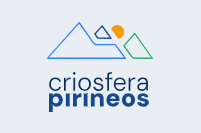LINDUS-2
Description of the case study
It is estimated that 90% of Europe's migratory birds cross the Pyrenees region’s Lindus pass annually. For this reason, Lindus 2 has specifically worked on the systematisation of migratory bird counting, which has allowed its major role as a climate change knowledge indicator to be enhanced. In addition, it has been possible to develop environmental volunteer groups, whose involvement in the migratory bird study grows each season. Finally, growing interest in ornithology is helping with the development of a quality eco-tourism area that involves promoting the development and economy of Pyrenean municipalities.
As well as identifying and counting birds in four strategic areas (Lindus, Organbidexka, Portalet, and Somport), LINDUS-2 develops social awareness by working with eco-volunteers and a permanent cross-border migration study centre. The project also promotes eco-tourism linked to birdwatching in the Lindus area and showcases the natural and cultural heritage in the zone. On the other hand, a bat migration study is being carried out, which includes thermal infra-red recordings and annual reports.
The main objective of LINDUS 2 is to develop an Integral Cross-Border Programme (PIT) for biodiversity, environmental education and eco-tourism along the Pyrenean border based on migration studies and a volunteering and environmental training programme. The results of the programme will be of benefit to the scientific community, environmental experts, citizens, and school pupils, as well as regional stakeholders including municipal councils and the local tourism sector in the Atlantic Pyrenees area.
The main actions taken forward in the project are as follows:
» Rolling out a cross-border programme for studying migration by means of a bird observation campaign, annual reports, and a bat migration study (thermal infra-red imaging).
» Launching a cross-border environmental education and training programme involving a volunteer programme, technical training for volunteers, environmental training for locals and visitors, environmental education for school pupils, and environmental training around the project’s scientific work and the region’s natural heritage through summer universities in Burguete.
» Developing an integrated eco-tourism strategy in the Auritz-Burguete area, as well as training and information activities for local stakeholders (local politicians, hospitality sector, etc.).
» Communicating and promoting the project on different levels.
Migratory bird-related results updated:
https://www.trektellen.nl/
Case study developed and implemented as a climate change adaptation measure.
The project is run by the Auritz-Burguete Municipal Council (Navarre), the public Navarre Environmental Management company (GAN-NIK), the Spanish Ornithological Society (SEO), and the Ligue Pour la Protection des Oiseaux - Association Locale Aquitaine (LPO).
Additional Information
Government, NGOs, Public Companies, Municipal Councils, and Private Companies. workshops, consortium meetings, surveys.
Success factors:
» The number of birds counted.
» The number of people involved.
Failure:
» Cross-border coordination
» Results transfer
It should be noted that subjectively the number of birds counted is not a success or failure criteria, but rather an indicator of the adaptive process. The success criteria is the continuation of the indicator.
LINDUS 2 is 65% co-financed by the European Regional Development Fund (ERDF) through the Interreg V-A Spain-France-Andorra programme (POCTEFA 2014-2020).
Navarre budget: €356,181.30
Government of Navarre contribution: €124,663
ERDF contribution: €231,518.30
There is no National Plan.
The Pyrenean Environmental Education Strategy is being developed.
Everything has been developed with POCTEFA financing.
Currently, 2019-2022 continues to be co-financed by another POCTEFA project (NaturClima).
01/01/2016 - 12/31/2018 (2 years - completed)
Reference information
PYRENEAN CLIMATE CHANGE OBSERVATORY
Avenida Nuestra Señora de la Victoria, 8
22.700 - Jaca
Huesca - España
+34 974 36 31 00
info_opcc@ctp.org




